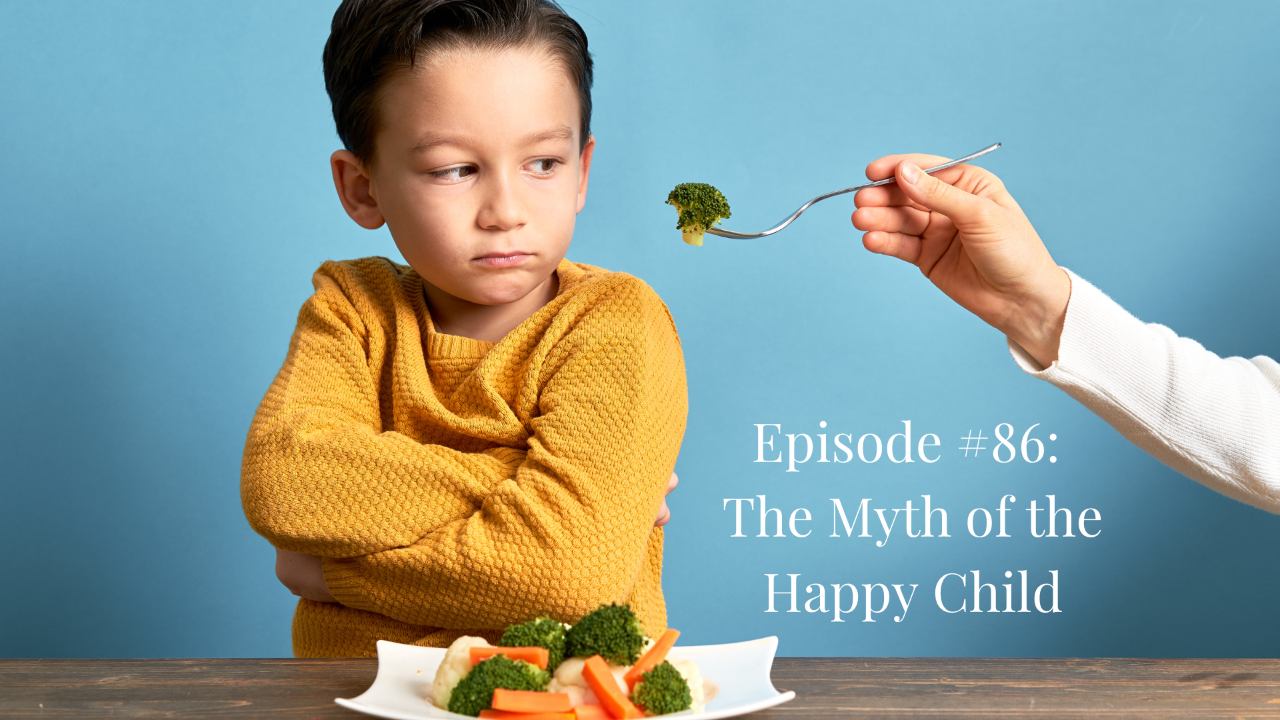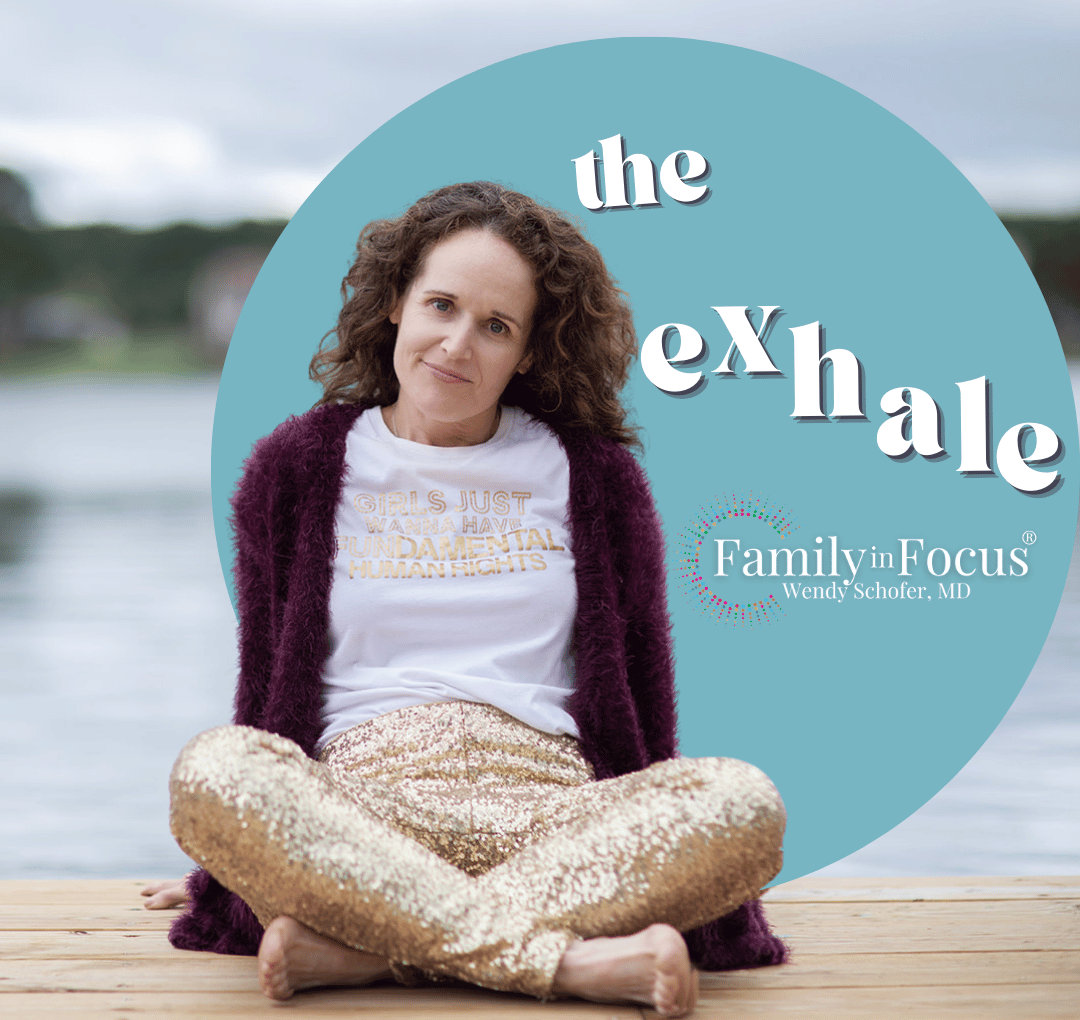
We start saying it even before we have kids: we want our kids to be happy and healthy.
Hold the phone: The first part is whacked. What is happiness for a kid? And why should they be happy all the time?
We are in a culture that is all about hedonism -- ok, it's not sexy bodies all over the place, well... except sheesh... I just flipped my brain to social media and you're right, it's all physical bodies all over the place.
I digress. Our culture is about pleasure. And that's actually a human drive: We want to feel good. We seek pleasure, avoid pain, and conserve energy wherever possible.
But there's a problem with that:
GROWTH is uncomfortable.
Learning can be uncomfortable.
And a big chunk of our lives (some say 50%, but that's relative) is spent... feeling bad.
We can say that feeling good means that our needs are being met, but even thinking about Prince Akeem.... from Coming to America... he had all of his physical needs met, but yet, he didn't want an arranged marriage. He wanted an independent woman who loved him for him, not his social status. He left his kingdom, came to America and worked at McDowells and met the love of his life.
Feeling good doesn't actually mean that our needs are being met - because we also have a need to grow and explore and face uncertainty and become someone we don't know yet. We don't know what is possible until we think it, and we don't know if we are capable of doing it until we risk failure and uncertainty and just do the damn thing.
Feeling bad... isn't all bad.
But being a parent who does everything to prevent kids feeling bad... is an uphill battle.
I've seen that look like kids who don't know how to handle the discomfort of boredom, "nothing to do," one reason for quick emotions with hunger.
Now this is NOT about teach kids discomfort tolerance and telling them to wait, wait, wait for food. Do not use food as a weapon. That's being an ass, not a parent, and it's reinforcing fears of restriction and deprivation. Do not do that.
Instead, what about compassion for discomfort? Being there?
We joke around in our house about, "Pappy Time". Whenever you'd ask Pappy about how long anything would take, he would always say, "Five minutes!"
Waiting for dinner? 5 minutes? How long til Dad comes home? 5 minutes!
How long til the next exit so I can pee? Five minutes!
It was a reassuring, albeit completely arbitrary answer. The kids would start joking about, "How many Pappy-Times" was the actual answer?
Pappy's weird time-keeping wasn't about blowing smoke... well, maybe it was, but it was meant to be a reassurance, a way of saying, "Noted," and we kept going til we could take care of the need.
What is your Pappy Time?
My current practice is silence. Receiving it all. Listening, and not having any intention (ok, that's the practice) of responding or fixing.
When kids are used to parents swooping in and fixing, it can sure seem uncomfortable to have a parent just sit there. Do it anyway.
They are learning that they can express anything and everything. And also, that they are not needing to be fixed. You are there no matter what. And the goal isn't to just make things feel better, but to grow through them, and also let them learn and acquire the skills to figure it out their way.
I'm learning myself, and teaching my kids and nieces and nephews (and perhaps other adult family members) that it is OK to not be happy all the time. In fact, let's expect it. Especially as kids learn to hear the word "no," it is ok to be disappointed, sad, frustrated.
Let them feel it. It is normal.
When there is loss, we feel grief. Feel it.
It's a much bigger problem when we try to stamp out feelings by distraction:
Oh, here, eat this or watch this, it will make you happy. Here I'll stop saying no so you will stop crying and just be happy. Those are oversimplified, but notice how it's how we have all changed our approach because we wanted our kids to feel differently.
A friend once said a mantra that "I'm only as happy as my unhappiest child."
I'm only as happy as my unhappiest child.
Ick.
That's a low bar.
And that's putting kids' emotions in charge of OURS.
Nope.
That's bologna. Let it go. Your child can be unhappy. Or raging. Or depressed. Be there with them. Support them, and don't pathologize their emotions. They don't have to be fixed or changed. In fact, we have a much better emotional health when we learn that we can feel emotions and not feel the need to control them or push them away.
Calling all Healthcare Professionals: I'm so glad you're here, to benefit yourself, your family, and your patients. The CE experience for this Podcast is powered by CMEfy - click here to reflect and earn credits: https://earnc.me/yrHnup
Check out the Family in Focus with Wendy Schofer, MD Podcast!
Stay connected with news and updates!
Join our mailing list to receive the latest news and updates from our team.
Don't worry, your information will not be shared.
We hate SPAM. We will never sell your information, for any reason.


